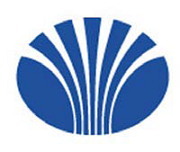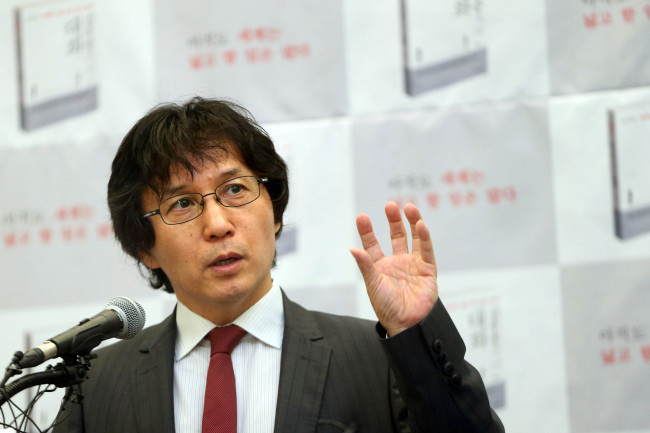[SUPER RICH] Daewoo’s global business legacy lives on
Founder Kim Woo-choong’s formula for success in emerging markets still applicable, says professor
By Seo Jee-yeonPublished : Sept. 1, 2014 - 20:46
The stories of Daewoo Group and its founder Kim Woo-choong have been kept low-key in Korea for more than a decade since the group fell apart in August 1999.
 The demise of Daewoo Group, the nation’s second-biggest conglomerate in 1998 with 76.7 trillion won ($75.6 billion) in assets, rattled the nation as the biggest failure in the corporate world.
The demise of Daewoo Group, the nation’s second-biggest conglomerate in 1998 with 76.7 trillion won ($75.6 billion) in assets, rattled the nation as the biggest failure in the corporate world.
Shin Jang-sup, an economics professor at the National University of Singapore, broke the taboo last week, bringing the 78-year-old former business mogul back to the center stage.
In the professor’s new book, “Dialogue with Kim Woo-choong ― The World is Still Wide With Many Things to Be Done,” Kim, once one of the richest men in Korea, tells from his point of view how Daewoo Group went bankrupt, igniting the debate over whether Kim was the culprit or the biggest victim of the financial crisis in Korea in the late 1990s.
Kim blamed the fall of Daewoo on the Kim Dae-jung government’s economic team for forcing the conglomerate to lower its debt level below 200 percent in a year. The group’s aggregate debt-to-equity ratio soared to 588 percent in June 1999 due to a credit crunch.
Kim insisted the group would be able to pay back the bank loan by accelerating exports rather than selling off profitable businesses, but the government didn’t accept his solution.
 The demise of Daewoo Group, the nation’s second-biggest conglomerate in 1998 with 76.7 trillion won ($75.6 billion) in assets, rattled the nation as the biggest failure in the corporate world.
The demise of Daewoo Group, the nation’s second-biggest conglomerate in 1998 with 76.7 trillion won ($75.6 billion) in assets, rattled the nation as the biggest failure in the corporate world. Shin Jang-sup, an economics professor at the National University of Singapore, broke the taboo last week, bringing the 78-year-old former business mogul back to the center stage.
In the professor’s new book, “Dialogue with Kim Woo-choong ― The World is Still Wide With Many Things to Be Done,” Kim, once one of the richest men in Korea, tells from his point of view how Daewoo Group went bankrupt, igniting the debate over whether Kim was the culprit or the biggest victim of the financial crisis in Korea in the late 1990s.
Kim blamed the fall of Daewoo on the Kim Dae-jung government’s economic team for forcing the conglomerate to lower its debt level below 200 percent in a year. The group’s aggregate debt-to-equity ratio soared to 588 percent in June 1999 due to a credit crunch.
Kim insisted the group would be able to pay back the bank loan by accelerating exports rather than selling off profitable businesses, but the government didn’t accept his solution.

“I think Kim’s contingency plan was a viable option (to lower the debt level) as most key Daewoo affiliates other than Daewoo Motors continued to grow during the 1990s, driven by business success in emerging markets,” Shin said. The business boom in emerging markets stretched into the 2000s.
“I agree that things were too complicated to pick one big reason for the dissolution of Daewoo, but one thing is clear: Debt-cut driven restructuring of conglomerates was not a cure-all for the faltering Korean economy in the late 1990s.”
Shin has consistently spoke out against corporate restructuring, which was often achieved through massive layoffs and sales of profitable assets to foreign capital at a cheap price.
“The biggest side effect of corporate restructuring was to suppress long-term investments of conglomerates,” Shin said.

“It is time to seek a paradigm shift for the continued development of the Korean economy, which is drifting into the doldrums of low growth and inequality. And I think Korea can get insight from Daewoo’s global management for a wind of change.”
Reassessment of Daewoo’s global management
Daewoo, founded by 27-year-old Kim Woo-choong as a small textile trading firm in 1967, grew into one of the most globalized industrial conglomerates in the world from an emerging country. The group stood ahead of Hyundai and Samsung in its global reach, building a comprehensive business network in 110 countries.
Many industry watchers say that behind the success was Kim’s close relationship with the authoritarian South Korean governments that controlled the economy. This is part of how Daewoo’s business portfolio diversified from textiles to heavy industries like shipbuilding and car manufacturing in the government’s five-year economic plan.
“Most of all, Kim’s entrepreneurial spirit was the most important trigger for Daewoo’s growth at home and abroad,” Shin said.
Reflected in the name of Daewoo, meaning “great universe” in Korean, Kim chose to tap into the great universe beyond Korea ― less developed and isolated nations like African countries, where he thought Daewoo, based in an emerging market itself, could build brand power and have a competitive edge over other global brands from advanced countries.
Daewoo was the first company in the world to enter Sudan by building a tire plant there in 1978 and exporting the products to other countries.
Kim sent young and smart talent to difficult markets to be developed in an effort to raise their competence in new market exploration.
“Employees at Daewoo, dubbed ‘Daewoo Men,’ still have a tight bond and take a leadership role in different sectors based on experiences gained from a variety of hardships that they faced while developing in emerging markets in the 1990s,” Shin said.
Another success formula of Daewoo in overseas markets was the profit-sharing principle with emerging markets.
“Unlike from profit generation-oriented business people, Kim took 50 percent of profit gains in an emerging market and spent it on society,” Shin said. “Kim said the bold profit-sharing helped to build trust among consumers in emerging societies, which led to huge business success in the long term.”
Regarding his plans for the future, Shin said he would publish an English-language book next year to analyze Daewoo’s global management know-how in emerging markets, targeting entrepreneurs who set their eyes on niche markets. In 1989, Kim published his autobiography in English under the title “Every Street is Paved with Gold” in an effort to inspire young entrepreneurs.
By Seo Jee-yeon (jyseo@heraldcorp.com)









![[Hello India] Hyundai Motor vows to boost 'clean mobility' in India](http://res.heraldm.com/phpwas/restmb_idxmake.php?idx=644&simg=/content/image/2024/04/25/20240425050672_0.jpg&u=)








